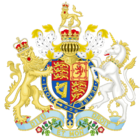Medical Relief Disqualification Removal Act 1885 facts for kids
| Act of Parliament | |

|
|
| Long title | An Act to prevent Medical Relief disqualifying a person from voting. |
|---|---|
| Citation | 48 & 49 Vict. c. 46 |
| Dates | |
| Royal assent | 6 August 1885 |
| Commencement | 15 July 1884 |
| Other legislation | |
| Repealed by | Representation of the People Act 1918 |
|
Status: Repealed
|
|
The Medical Relief Disqualification Removal Act 1885 was an important law passed in the United Kingdom in 1885. This Act was created by the Parliament of the United Kingdom. It officially became law on August 6, 1885.
This law helped many people gain the right to vote. It changed older rules that stopped people from participating in elections.
Contents
What Was the Medical Relief Act?
This Act made a big change to who could vote. Before this law, if you or your family received medical help paid for by the poor laws, you could not vote. The poor laws were old systems that provided help to people who were very poor. This help included things like food, shelter, and medical care.
The new Act said that getting medical or surgical treatment under these poor laws would no longer stop you from voting. This applied to both national elections (for Parliament) and local elections (for city councils).
Why Was This Act Needed?
In the past, receiving help from the poor laws was seen as a sign that someone was not fully independent. Because of this, they were often prevented from voting. This meant many people, especially those struggling financially, had no say in how their country or town was run.
The Medical Relief Disqualification Removal Act aimed to fix this unfair rule. It recognized that needing medical help should not take away a person's right to vote.
Who Could Vote After This Act?
After this Act, people who received medical care through the poor laws could vote in most elections. This included voting for members of Parliament. It also included voting in local elections for municipal (city or town) leaders.
However, there was one exception. People who received poor relief still could not vote for members of a "parochial board." These boards were local groups that managed poor relief. So, while they could vote in bigger elections, they still couldn't vote for the specific groups that helped them.
When Did the Act End?
The changes made by this Act were considered active from July 15, 1884. This meant that even before the law was officially passed, its effects were already in place.
The Medical Relief Disqualification Removal Act 1885 was eventually replaced. It was fully ended by a new law called the Representation of the People Act 1918. This happened in 1918. The 1918 Act made even bigger changes to voting rights in the UK.
 | Aurelia Browder |
 | Nannie Helen Burroughs |
 | Michelle Alexander |

